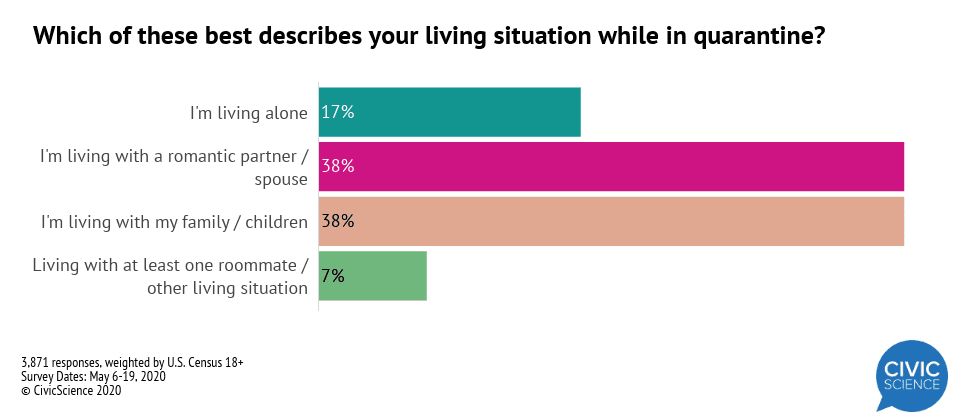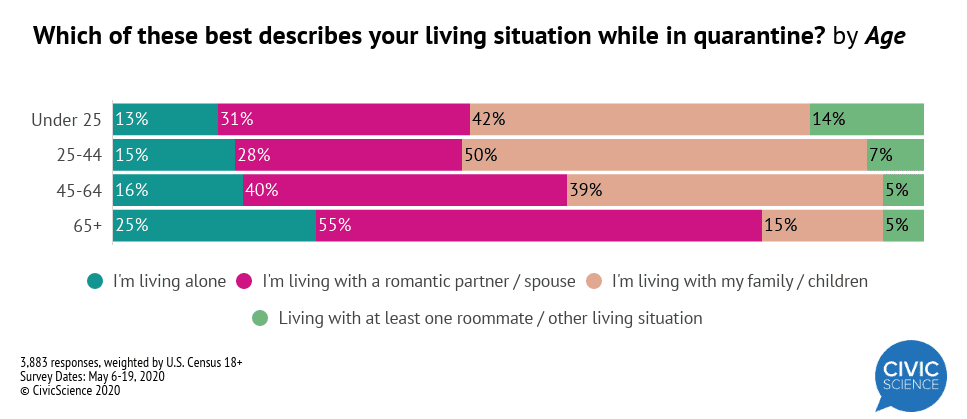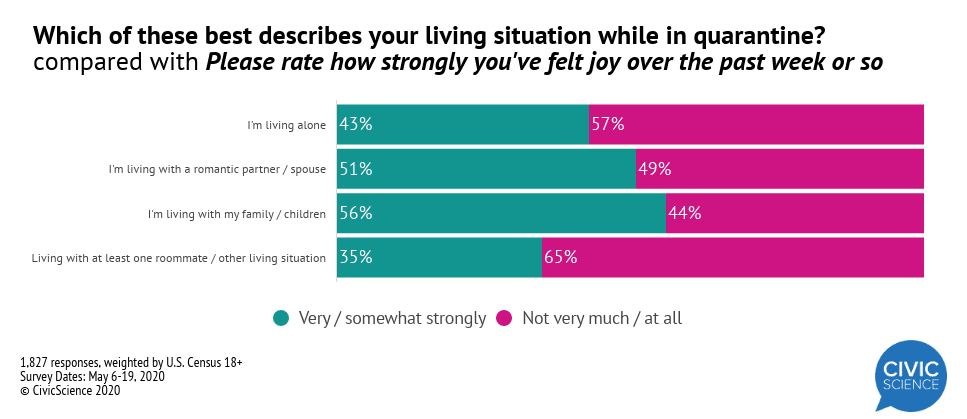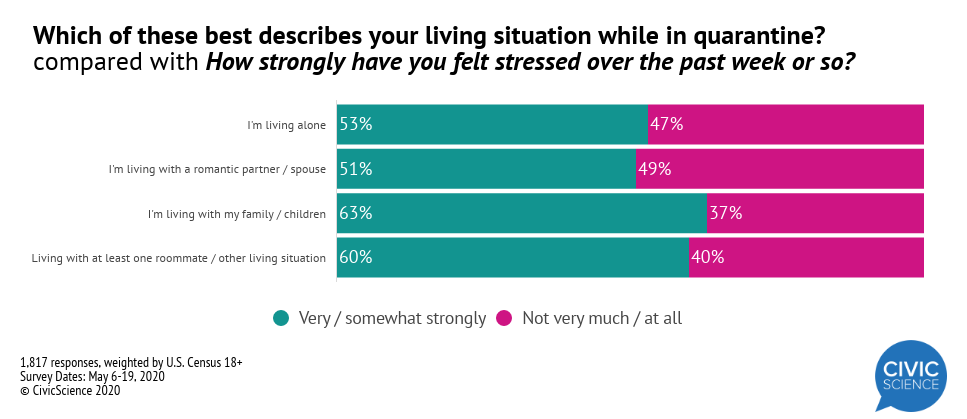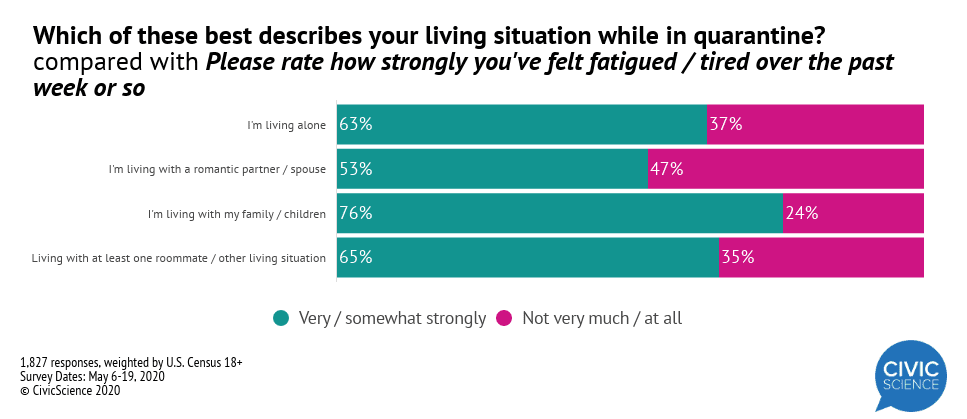Quarantining, as ‘staying home way more than usual during the coronavirus crisis’ has been culturally dubbed, is easier for some than it is for others. Depending on your personal living situation amid the crisis, lockdown has created a wide range of new responsibilities, possibilities, isolation, and emotional states.
CivicScience conducted a study to understand how different lockdown living situations are changing outlooks and emotional well-being.
The survey, asked to just over 3,800 U.S. adults, shows that most adults are quarantining with someone, but 17% of the population is alone at this time.
Living Situation by Age Demographic
The older the respondent, the more likely they are to say they are alone during lockdown. On the other hand, the younger the respondent, the more likely they are to say they’re living with roommates of the like.
One’s own quarantine experience correlates with their eagerness to end it. Those who are living alone are the most likely to want to resume all or most normal activities
We see similar levels of wanting to remain in quarantine across all living situations, with the largest percentage (47%) coming from those living with just their spouse or partner.
The Emotional Toll
Those not living with their partner or family right now are less likely to have experienced joy in recent weeks. We see the highest rates of happiness among those living with just their partners, while those who are alone are the most likely to report being unhappy.
It should also be noted that those with their family and / or children are more neutral on the happiness scale than those quarantining with just a partner. This neutral state is also highly prevalent among those with roommates.
When looking at self-reported levels of stress and fatigue, we see the highest levels among those living with their family / children.
We see the most worry, however, among those living with roommates or similar.
This over-indexing of worry could be due to the fact that those with roommates have a high rate of being out of work or facing reductions in their pay. They’re also, however, the most likely to be working from home. In a shared space, it’s harder to carve out a dedicated work space, so perhaps this has to do with it, too. Plus, privacy in general is likely out the window if you aren’t leaving the house as much to see friends and do your own thing.
What Comes Next?
Quarantine experience is completely personal and the data proves that it has many implications and considerations beyond your own experience. CivicScience will continue to track the emotional toll this new era takes on us beyond the physical pandemic.
